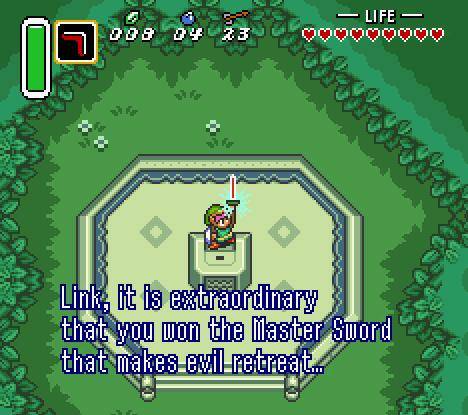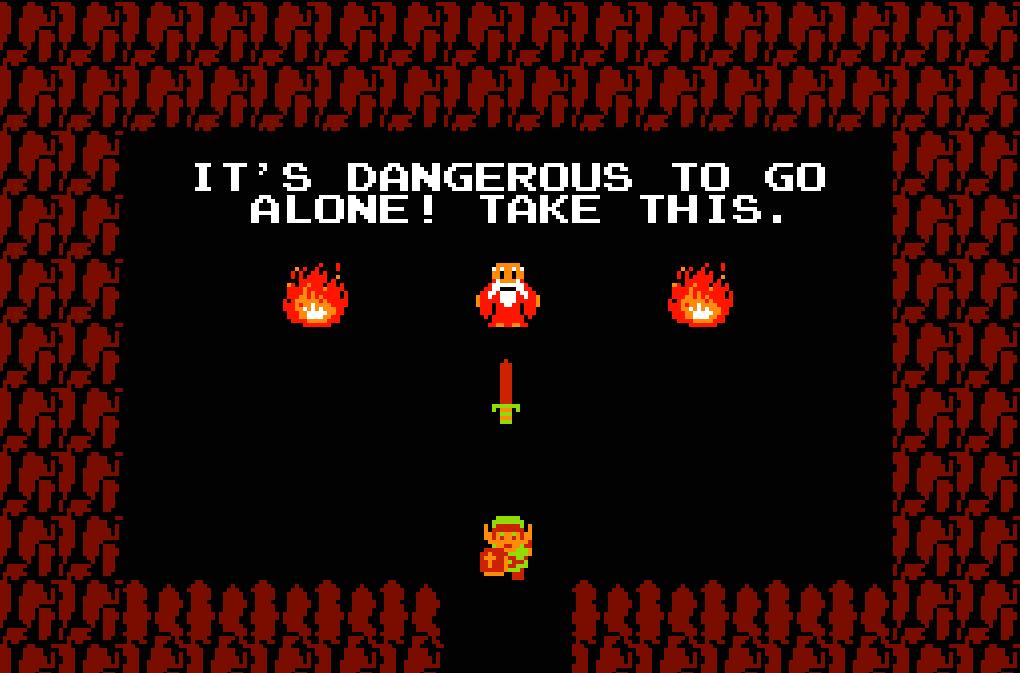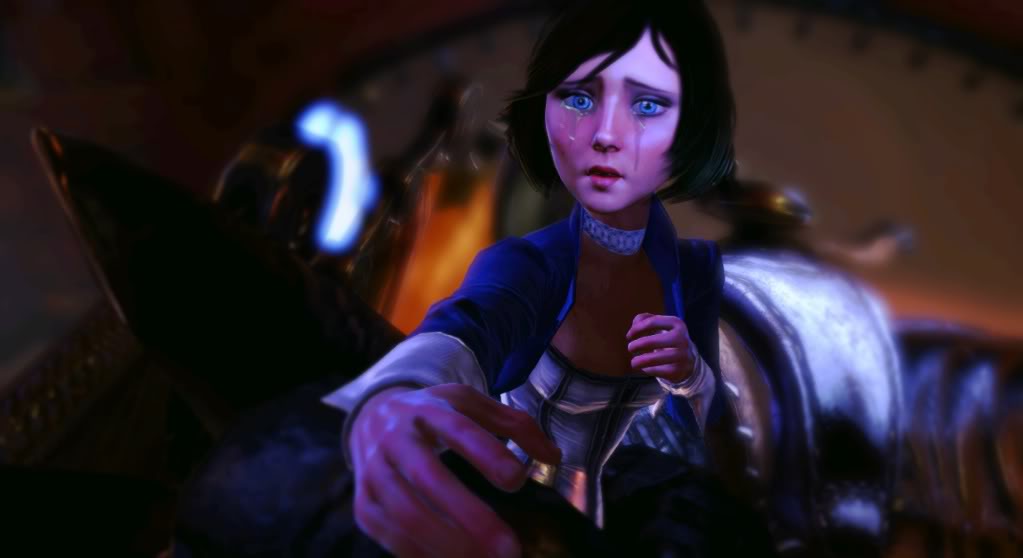This post has not been edited by the GamesBeat staff. Opinions by GamesBeat community writers do not necessarily reflect those of the staff.
 There are 3 iconic games in The Legend of Zelda series: The NES original, A Link to the Past, and Ocarina of Time. Of these three, I can’t deny that A Link to the Past has aged the most gracefully. I daresay that it’s a game worth playing not only for its historical value, but because it remains among the very best in game design to date. Yeah, that’s how good it is.
There are 3 iconic games in The Legend of Zelda series: The NES original, A Link to the Past, and Ocarina of Time. Of these three, I can’t deny that A Link to the Past has aged the most gracefully. I daresay that it’s a game worth playing not only for its historical value, but because it remains among the very best in game design to date. Yeah, that’s how good it is.
Few games have aged as well. For example, it is tough going back to the old mechanics of the original Metal Gear Solid when every game since then has, from a gameplay standpoint, far exceeded it. The story may be worth experiencing, but I otherwise find it hard to convince myself to play a game which has a central theme of sneaking but doesn’t even have a genuine “walk” feature.
When you consider modern design, there are not many games that promote the kind of exploration and experimentation that A Link to the Past offers. Today it’s rare for a game not to point you in the right direction. A Link to the Past does do this but at the same time, it won’t hold your hand.
While I was playing, I couldn’t remember for the life of me where the warp from the light world to the dark world was… the warp that would allow me to get to crystal dungeon 3. During my search I found a bottle and some heart pieces. Even though I was making little progress in the story, I felt like I was making a difference.
I’m not complaining about modern game design. I mean, the limitations of retro game design is certainly evident in the Zelda series alone. I don’t find the aimless wandering around of the original Zelda game very appealing. However, in A Link to the Past, I never felt like I was lost with nowhere to go. I knew where I needed to go; I just wasn’t completely sure how to get there. And that was part of the adventure.

I'm pretty sure I would have died less if he had given me a map instead.
A Link to the Past took me 5 days to get from start to finish, but I could have spent weeks playing it, if only I hadn’t remembered important features like how to upgrade the sword, or how to carry more arrows and bombs. The days would have gone by, and I would still be exploring every nook and cranny of the game, hoping to unearth more secrets.
I bought the game 13 years ago from my local game speciality store (before I even knew what a Gamestop was). Even though I had an N64 with some great games, I had a hard time tearing myself away from my “obsolete” SNES. I had played it when I was much younger, but I had never finished it. I purchased it to psych myself up for the impending release of Ocarina of Time. 3 weeks after the purchase, I was still working on making a complete save file and I enjoying every minute of it.
There a so few games that I consider "classic". Games that are so good that you can go back and play them even with modern technology reaching an apex that I couldn’t have imagined 15 years ago. A classic game doesn’t rely on cutting edge technology or state of the art visuals, but rather, a classic game, one that can age without feeling dated when it’s played, is the product of masterful design.

Is Bioshock: Infinite going to be our next iconic video game?
How many games can we honestly say that about? More importantly, how many of the games being released within the next 12 months will be considered timeless classics? There are big titles just around the corner. Will Gears of War 3, Battlefield 3, Skyrim, or Arkham City be on many “best ever” lists 15 years from now?
I remember in the glory days of printed publication these “best ever” lists would pop up every now and then in our wonderful nerd magazines. I wonder how A Link to the Past would fare today. Would it be forgotten? Would it be placed in an unceremonious position (20-10)? Or would this legendary title be placed where it belongs?
Among the most prestigious, lauded, culturally defining games that we have seen in the past 30 years, A Link to the Past endures as a game not only with historical relevance, but as an example of how to craft a timeless adventure.
